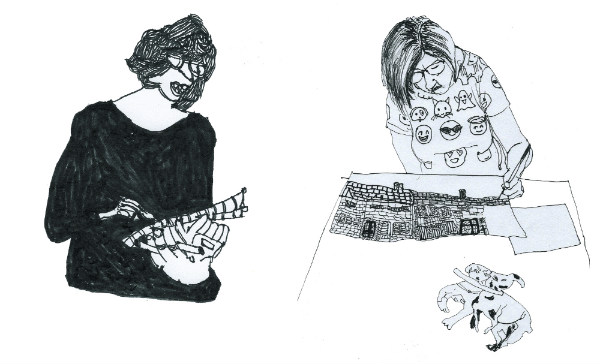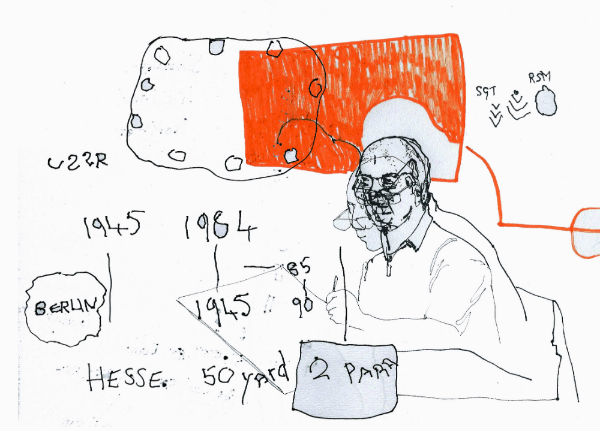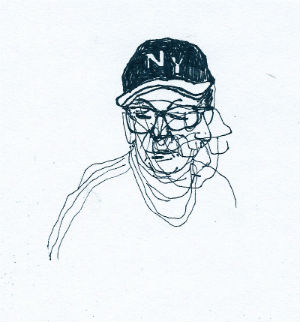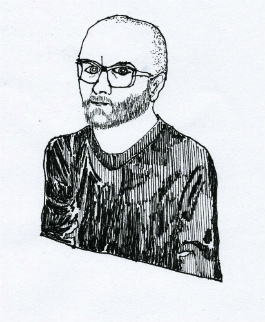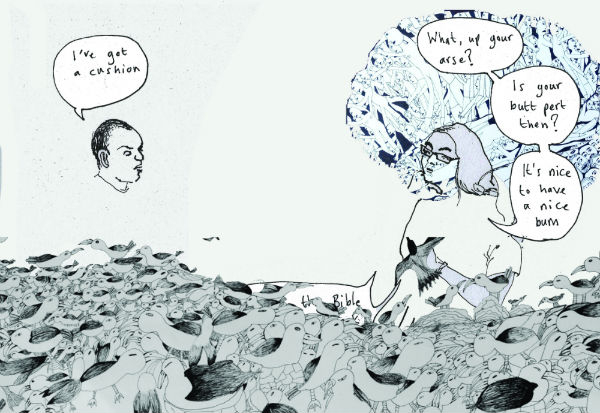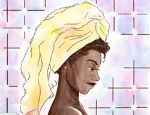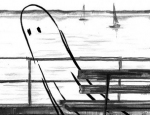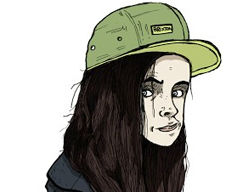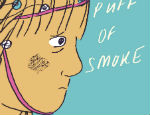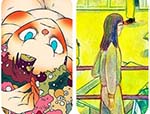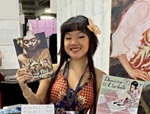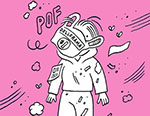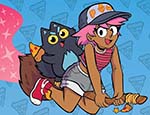
There are many comics crowdfunding projects out there worthy of attention for reasons of craft, aesthetics or narrative. And then there are those that need to happen for reasons beyond the specific work itself – because they take the medium in new directions, promote collaborative practice that is unique in both conception and direction, and use comics to speak to us in a way that no other medium could.
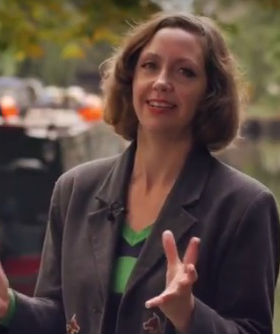 Hardly a day goes by here at Broken Frontier when we don’t get multiple e-mails requesting promotion for upcoming crowdfunding campaigns, or reminding us of existing ones, and we can only ever cover the smallest fraction of them. But every so often projects come along that don’t just deserve our championing… they’re owed it.
Hardly a day goes by here at Broken Frontier when we don’t get multiple e-mails requesting promotion for upcoming crowdfunding campaigns, or reminding us of existing ones, and we can only ever cover the smallest fraction of them. But every so often projects come along that don’t just deserve our championing… they’re owed it.
Like an Orange, the new work-in-progress by Wallis Eates from crowdfunded publisher Unbound Books, is very much in that category. Eates is a remarkable voice in UK self-publishing – and I use that adjective without even a hint of hyperbole – whose autobio work has long been a favourite here at BF.
This new book is a graphic narrative focusing on the stories of the brain injury survivors Eates met when working at the East London branch of the charity Headway. Wallis talks in depth about the project in our interview below but we also implore you to check out the crowdfunding campaign here and back it if you can…
ANDY OLIVER: Your work has been regularly featured on Broken Frontier over the last couple of years but for those discovering your comics for the first time through the Unbound campaign can you give us a brief history of how you became involved in the small press scene?
WALLIS EATES: It all started with an urge to draw and write about some of my memories, and as soon as I did, I found there was this platform. It began with with somebody telling me about Laydeez Do Comics, so I got in touch and gave a talk there. At the same time, someone else told me about Babak Ganjei and Olly Chance who were looking for artists to contribute to their anthology Steak Night #3 [reviewed here at Broken Frontier], so I got in touch and that happened too. I then entered for the Myriad First Graphic Novel Competition, and made the final shortlist. It was at this stage I really started to see the community, and so I became involved by making zines, self-publishing, and going to comic fairs.
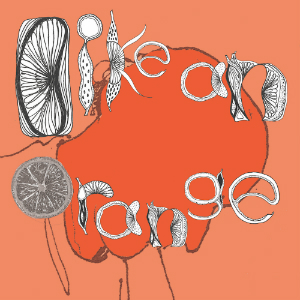 In terms of both your self-published material and anthology contributions where would readers have seen some of your comics to date?
In terms of both your self-published material and anthology contributions where would readers have seen some of your comics to date?
They may have come across my zines, there’s the really grim series, Fleeting Faces or You Chew I Spew which consists of friends’ anecdotes, or even my weird hair one full of thread, called The Tales of a Trichotillomaniac. In addition to these, there are the two comics properly printed on lovely paper by the the marvellous Comic Printing UK – they are The Magic Quadrant that came from a residency I did in a Romford shopping centre, and Fear of Mum-Death and the Shadow Men a collection of stories from my work-in-progress graphic memoir, Mumoirs (this is the one that was shortlisted for the Myriad competition).
I’ve also had the absolute pleasure to contribute to One Beat Zines’ Not a New Wave; Keara Stewart’s A Bit of Undigested Potato; Rozi Hathaway’s Sneaky Business; Good Comics’ Dead Singers Society both volumes 2 and 3, as well as Steak Night #3 as mentioned above, produced by Records Records Records.
Can you tell us about how you got involved with the Headway charity and the ‘Submit to Love’ art project and how that work became the basis for your latest project Like an Orange?
When I first started drawing memories of my friends for the You Chew I Spew series, I got a trembly feeling in my stomach and thought it would be such a good idea to put some kind of collection of stories together from people who all have something in common, and maybe don’t get their voices heard, but have something to say. I didn’t know what that was, and I was in a full-time job at the time, so I put this idea on the stove for a future realisation.
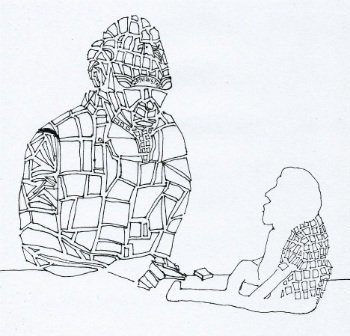 Then a few years later, once all those things in my answer to question 1 had happened, I saw an ad on ArtsJobs from Headway looking for an Artist-in-Residence to be located at their art studio, ‘Submit to Love’ in East London. Learning that the studio is there to aid survivors of brain injury in their rehabilitation, I felt very strongly that this was the opportunity I’d been looking for to create the book I’d envisaged all those years ago.
Then a few years later, once all those things in my answer to question 1 had happened, I saw an ad on ArtsJobs from Headway looking for an Artist-in-Residence to be located at their art studio, ‘Submit to Love’ in East London. Learning that the studio is there to aid survivors of brain injury in their rehabilitation, I felt very strongly that this was the opportunity I’d been looking for to create the book I’d envisaged all those years ago.
I pitched to Headway that I’d like to get to know their members, put their stories together in comic form and incorporate their artwork. It was really important that I stress that the idea of this is to get across the individuality of their members and their experiences, and I think this is what Headway liked most about my pitch. The artists there are an inspiration and people need to know!
How did you and Like an Orange become a part of the Unbound Books graphic novel line?
It was through you, actually Andy! I came to a Process night at Gosh! Comics in London where you were interviewing a panel of people from Unbound Books, including Lizzie Kaye the commissioning editor. She mentioned she was particularly interested in non-fiction and unusual approaches so I thought I simply MUST talk to this like-minded woman! I was so glad I did, she loved the idea and so I followed it up with her and here we are.
What is the origin of the book’s title?
Two of the artists I met said their surgeons had likened their heads or brains to oranges! For one it was because he’d fallen down stairs and his head split open in much the same way an orange would, for the other it was because her brain grew tumours “like Seville grows oranges”. I was struck by how this fruit came up twice, and couldn’t help but think that the Submit to Love studio was rather like an orange too – bursting with life, vibrancy, full of separate pieces all connected together and contained in a space. I also have very personal associations with oranges (I know, weird!), relating to memory and identity, which are the core themes of the subject matter.
How are you using comics as a form to explore their stories in Like an Orange? What is it about the form that makes it such a fitting medium for these accounts?
Most of the stories I heard weren’t heavy with words, but there was a lot of feeling and depth of emotion surrounding these extraordinary experiences and how I was told them. The essential common factor in all brain injury cases is the fact that a single moment will have an impact across time and affect the narrative of someone’s life and of those around them significantly. Therefore, comics is such a great medium to share these stories as it has a time-sculpting element, alongside voice and atmosphere.
Also, because the comics form is so versatile, I will be fully exploiting that to convey the uniqueness of each story, of the person who told it, and relating it to their artwork. This at times will be quite experimental – for example, I may blend panels into one another, have overlays to blank parts out, as well as using the medium in a fairly straightforward way. Basically, the look of each story and how it is told will rely on its content and be inspired by the storyteller’s own artwork.
Memory, its veracity and our perceptions of it have always been an integral part of your work. How does Like an Orange explore those themes?
In terms of memory loss, on the main – its impact on identity, communication and ability to function with simple tasks, and how all of these are, if not overcome, then certainly improved by having a space to be creative. One woman I worked with had an entire chunk of her life missing – she had to get to know her children again, learn the loss of her father again, and even struggle with short term memory loss in addition to the longer term. However, she said her emotions attached to all these people were still there, unaltered and accessible, she just didn’t have the narrative memory of them.
Her work often shows parts of the body crammed with people. To me, her story and her work seems to suggest that we carry feeling – memories even – in our bodies even when our minds can’t tell our present selves. So, Like an Orange explores the theme of memory by looking at ways in which we consciously or otherwise compensate for the lack of it, and that our identities are a continuing story made up of more than concrete notions of our past narrative.
At the same time, I was also inspired by listening to the memories that were still present, and how they activated memories of my own and made me feel connected to everyone there. Submit to Love studios is a fertile space for connectivity, and Like an Orange explores how the sharing of experiences through words and/or pictures can be so powerful. The initial barriers perceived by a disability can be dismantled by the vastness of the past and where we each might meet in our place of memory.
The brain injury survivors you worked with make a very special contribution to the book don’t they? Can you elaborate on that unique collaborative process?
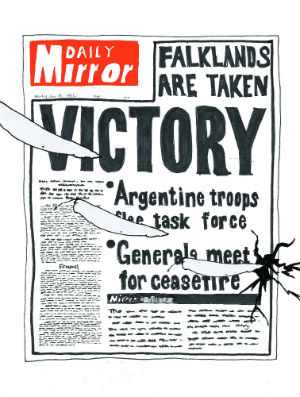 Most of the collaboration came through the conversations I had, and in every story I make a comic about, I will incorporate their art work according to these conversations. For example, one man was a soldier before he had a stroke, and many of his stories was about marching on beeches on the way to battle. Two of his paintings are of elephants, also marching. These will figure, as I also explore our connection in the memory-place as described above.
Most of the collaboration came through the conversations I had, and in every story I make a comic about, I will incorporate their art work according to these conversations. For example, one man was a soldier before he had a stroke, and many of his stories was about marching on beeches on the way to battle. Two of his paintings are of elephants, also marching. These will figure, as I also explore our connection in the memory-place as described above.
I remember the Falklands War where he fought, and the fact he was now conveying these experiences to me all these years later felt very poignant. It took time for him to tell me his stories as his speech and numerical recall were difficult for him, and we worked together on getting them right very slowly, perfecting a process of writing, doodling, repeating back. When finally, I was able to tell him his story back to him, it was pure joy.
Other kinds of collaboration were less intensive, sometimes we drew each other or drew a picture together. I was even directed at one point as to what colour hair to give someone, while this made for further conversation that can be elaborated on in the comic.
We’ve spoken before in interviews here about the responsibilities of autobiographical work. Are the responsibilities of a biographical project like Like an Orange similarly aligned?
Absolutely! Everyone who has taken part has signed a consent form that allows me to do this project, and when the work is complete, they will be asked to sign another one before it goes to print. Even so, I will still use my discretion and not disclose anything I think may be too sensitive – it may well be they had forgotten I was making our conversations into a project! Also, similarly to my process with autobiography, I will make clear at all times that everything I’m producing is my interpretation. It will come from a very personal, reflective point of view.
How have you found the prospect of getting out there and engaging with the crowdfunding process? Has it been a daunting one?
Yes, but I love it! It has opened up so many new avenues to explore already – I have met other artists who have acquired brain injury and people working around the subject. Given that connection is a theme of Like an Orange, I’m considering if some of this can be incorporated too, and I find that prospect exciting.
What are some of the rewards that backers can look for beyond the obvious print and digital copies?
There is original artwork up for grabs, including an orange segment – only 3 of those left from a set of 8, as well as prints from the book. Backers can also have a portrait of them included alongside their name in the book, and for anyone with an urge to do their own comics, I am offering 1-to-1 tutorials.
There’s also the option of having a bespoke day-in-your-life comic where you get to spend some time with ME (I’m sold, I have to be really), or you can be a patron. Coming soon is a pledge to spend an evening at Headway at their Supper Club, where you can meet the artists, be cooked for and entertained, and maybe even attend a workshop run by some of them!
Whenever I’ve interviewed someone crowdfunding through Unbound I’ve given them the opportunity to actively pitch the book. So here’s your chance – why should our readers back Like an Orange?
Raising awareness of brain injury is important to decrease the sense of isolation that survivors may feel. Anyone can suffer a brain injury, but there are those who already have. Let’s not turn our backs on what seems scary, let’s join forces and cry our hearts out, laugh our heads off – one thing we certainly all do have in common is that we’re all alive, and nothing taught me that more fully, more colourfully, than spending time at Submit to Love studio. It was named by one of the members, who passionately feels that this is what we all must do, so let’s do it. Like an Orange will be full of so many unique voices, both visually and in story – it will be like you were in the studio with us, and that is a fine place to be!
Back the Like an Orange crowdfunding campaign here!
For more on Wallis Eates visit her site here and follow her on Twitter here. You can find her online store here. Follow Unbound Books on Twitter here.





